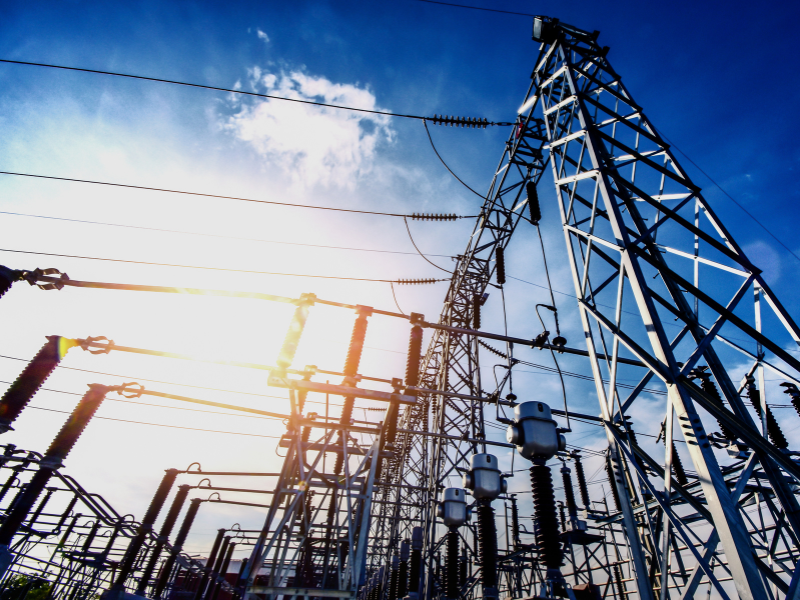Electricity Market Liberalization: Opportunities and Challenges
- Vivian Maria Cezario
- Oct 17, 2025
- 4 min read
Introduction
Electricity market liberalization marks a transformative shift in the global energy landscape. It allows consumers to choose their electricity providers rather than being restricted to state-assigned companies. This shift encourages market competition, enhances efficiency, and supports the integration of cleaner energy sources. Therefore, liberalization plays a critical role in advancing energy security, innovation, and decarbonization goals worldwide.
This movement is gaining momentum across both developed and emerging markets. Countries are increasingly embracing liberalized energy systems to modernize their infrastructure and meet growing energy demands. This article explores the concept of electricity market liberalization, who can participate, its benefits, and how it impacts the energy matrix in emerging economies like Brazil.

1. What Is Electricity Market Liberalization?
Electricity market liberalization refers to the deregulation of traditionally state-controlled energy markets. Under this model, consumers gain the freedom to choose their electricity suppliers, breaking away from monopolistic structures. This shift promotes competition, drives innovation, and empowers consumers with more personalized, flexible, and cost-effective energy options.
In Brazil, the process of market liberalization is underway, with full deregulation expected by the end of 2025. Initially, reforms focused on large industrial consumers, but the next phase will extend market access to residential users and small businesses. This inclusive approach is expected to diversify the energy landscape, enhance energy resilience, and support Brazil’s decarbonization and sustainability targets.
2. Who Can Participate?
Currently, participation in Brazil’s liberalized electricity market is restricted to large consumers with a minimum demand of 500 kW, primarily encompassing industrial and commercial users. However, as deregulation progresses, this access is expected to expand significantly. By 2025, residential consumers, small businesses, and multi-tenant properties like condominiums are likely to join the open market, promoting broader market engagement and competition.
3. Benefits of Electricity Market Liberalization
Liberalizing electricity markets offers several key advantages:
Cost Savings: Consumers can negotiate directly with suppliers to obtain competitive pricing and more favorable contract terms, potentially leading to significant cost reductions.
Access to Renewable Energy: Liberalization facilitates greater access to energy from renewable sources such as solar and wind, helping reduce carbon footprints and promote sustainability.
Enhanced Flexibility: With more choices, consumers can select suppliers and contract structures that best meet their energy needs, whether in terms of pricing, volume, or contract duration.
Increased Competition: A competitive market environment drives innovation, operational efficiency, and the development of advanced technologies that optimize energy use and minimize waste.
4. Impacts on National Energy Matrices
Electricity market liberalization can reshape national energy matrices by promoting the use of decentralized, renewable energy sources. On a global scale, the United States and the European Union have already implemented liberalized electricity systems. These markets demonstrate how deregulation can accelerate the transition to clean energy, enhance grid efficiency, and support long-term climate objectives.
Brazil — already known for its predominantly renewable energy mix — is further diversifying its energy portfolio through liberalization. This evolution encourages the adoption of clean technologies and reinforces the country’s commitment to sustainable development.
5. Preparing for the Shift: The Role of Energy Sector Companies
As electricity markets evolve, energy companies must adopt new strategies to remain competitive:
Invest in Digital Infrastructure: Technologies like smart grids, cloud-based systems, and IoT devices are critical for real-time monitoring, data analytics, and optimized energy management.
Prioritize Renewable Energy: Companies should increase investment in solar, wind, and hydro solutions to meet growing consumer demand for green energy.
Enhance Customer Experience: Competitive advantage will depend on offering tailored energy products, innovative pricing models, and responsive customer service that aligns with the changing needs of consumers.
6. Changing Consumer Profiles and Billing Models
Liberalization is also transforming consumer behavior and expectations:
Greater Autonomy: Consumers have the power to choose providers and negotiate terms that reflect their unique consumption patterns.
Increased Awareness: Greater transparency and access to information empower consumers to make informed choices and manage their energy usage more effectively.
Flexible Billing: New market dynamics enable flexible payment terms and customized billing structures, improving budget management and overall financial planning for consumers.
7. What to Expect in the Coming Years
The liberalization of electricity markets is unfolding gradually, with technological advancements and digitalization playing crucial roles in facilitating this transition. enabling energy companies to offer personalized and sustainable solutions. Rising competition and increased transparency are expected to drive operational efficiency, and accelerate the integration of renewable energy sources, ultimately contributing to a more resilient, flexible, and sustainable energy ecosystem.
8. How Atlântico Can Contribute
Atlântico, through its Center of Excellence in Artificial Intelligence and the ALIA (Artificial Intelligence Laboratory), is well-positioned to drive meaningful progress in the transformation of the energy sector. By applying advanced AI technologies, Atlântico enables energy companies to improve distribution efficiency, enhance the accuracy of demand forecasting, and develop personalized, data-driven contracts that reflect the needs of a more informed and proactive consumer base. In an increasingly digital and decentralized energy market, the ability to deliver intelligent, efficient, and sustainable solutions is critical to long-term success, and Atlântico stands at the forefront of this evolving energy landscape
Conclusion
The liberalization of electricity markets presents a great opportunity to redefine the energy sector. With broader market access, competitive pricing, and greater adoption of renewable energy, the future of energy is more dynamic and consumer-centric than ever. Energy companies must adapt by embracing innovation, investing in smart technologies, and developing agile business models. In this context, Atlântico acts as a trusted strategic partner, offering expertise and AI-driven solutions to support the future of energy consumption and trade.




Comments